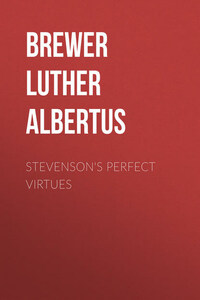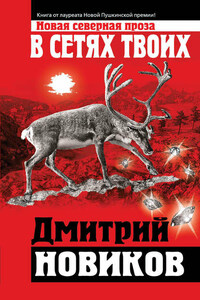STEVENSON’S PERFECT VIRTUES
Gentleness and cheerfulness are the perfect virtues.
– Robert Louis Stevenson
Stevenson was right. There is not a more admirable trait in one’s character than that of cheerfulness. Combined with that other virtue named by Stevenson, gentleness, and what more is needed to make a companionable and a beloved man.
These two attributes were possessed in an emphatic way both by Stevenson and by Leigh Hunt. That’s why some of us are so fond of Hunt. That’s why he is growing in esteem as he is becoming better known to lovers and students of the literature produced in England during the first half of the nineteenth century.
For it is certain that Hunt is coming into his own. First editions of his writings year by year are advancing in price. They are becoming scarce and in some instances exceedingly difficult to obtain. Catalogues of rare book dealers are listing fewer of his works, and when quotations are made they invariably are in advance of those of a year or two ago.
The cultivation of cheerfulness frequently is enjoined throughout his writings. He had many visitors in his home, attracted there by his personal qualities and by his gentleness of heart. He was fond of music, which formed a staple in the entertainment and the conversation.
Barry Cornwall (B. W. Procter), a long time intimate friend, in his Recollections of Men of Letters, mentions the evenings at Hunt’s house: “Hunt never gave dinners, but his suppers of cold meat and salad were cheerful and pleasant; sometimes the cheerfulness (after a ‘wassail bowl’) soared into noisy merriment. I remember one Christmas or New Year’s evening, when we sat there till two or three o’clock in the morning, and when the jokes and stories and imitations so overcame me that I was nearly falling off my chair with laughter. This was mainly owing to the comic imitations of Coulson, who was usually so grave a man. We used to refer to him as an encyclopedia, so perpetually, indeed, that Hunt always spoke of him as ‘The Admirable Coulson!’ This vis comica left him for the most part in later life, when he became a distinguished lawyer.”
It was this same Barry Cornwall who introduced Hawthorne to Hunt, a charming account of Hawthorne’s visit being recorded in Our Old Home. “I rejoiced to hear him say,” he writes, “that he was favored with most confident and cheering anticipations in respect to a future life; and there were abundant proofs, throughout our interview, of an unrepining spirit, resignation, quiet relinquishment of the worldly benefits that were denied him, thankful enjoyment of whatever he had to enjoy, and piety, and hope shining onward into the dusk – all of which gave a reverential cast to the feeling with which we parted from him. I wish he could have had one draught of prosperity before he died.”
There are many of us ready to give expression to the same wish.
Speaking of Hunt’s Autobiography, a book second only in interest to Boswell’s Johnson said Carlyle, this caustic writer had the grace to say that the reader might find in that book “the image of a gifted, gentle, patient, and valiant human soul, as it buffets its way through the billows of time, and will not drown though often in danger; cannot be drowned, but conquers and leaves a track of radiance behind it.”
The Spectator, London, said this autobiography was one of the most graceful and genial chronicles of the incidents of a human life in the English language. “The sweetness of temper, the indomitable love and forgiveness, the pious hilarity, and the faith in the ultimate triumph of good revealed in its pages show the humane and noble qualities of the writer.”
This appreciation of Hunt is in contrast with the portrait drawn by Dickens in Bleak House, where the character of Harold Skimpole was so patent a caricature of Hunt that mutual friends promptly remonstrated with the author, and this influenced Dickens, in the later numbers of the monthly parts in which the book was issued, to modify his picture.
In writing of his father after his death, Thornton evidently had in mind this ungenerous act of Dickens when he penned these sentences: “His consideration, his sympathy with what was gay and pleasurable, his avowed doctrine of cultivating cheerfulness were manifest on the surface, and could only be appreciated by those who knew him in society, most probably even exaggerated as salient traits, on which he himself insisted with a sort of gay and ostentatious wilfulness. In the spirit which made him disposed to enjoy ‘anything that was going forward’ he would even assume for the evening a convivial aspect, and urge a liberal measure of the wine with the gusto of a bon vivant. Few who knew him so could be aware, not only of the simple and uncostly sources from which he habitually drew his enjoyments, but of his singularly plain life, extended even to a rule of self denial. Excepting at intervals when wine was recommended to him, or came to him as a gift of friendship, his customary drink was water, which he would drink with the almost daily repetition of Dr. Armstrong’s line, ‘Nought like the simple element dilutes.’… His dress was always plain and studiously economical. He would excuse the plainness of his diet, by ascribing it to a delicacy of health, which he overrated. His food was often nothing but bread and meat at dinner, bread and tea for two meals of the day, bread alone for luncheon or for supper. His liberal constructions were shown to others, his strictness to himself. If he heard that a friend was in trouble, his house was offered as a ‘home’; and it was literally so, many times in his life.”








